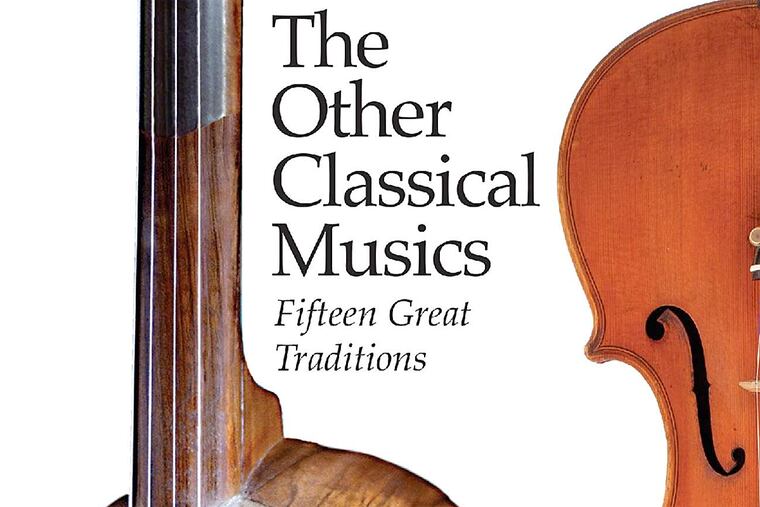CLASSICAL NOTES
Herbert who? The Delius Society, which also champions its namesake's contemporaries, will give the U.S. premiere of a string quartet by Herbert Murrill, a name unfamiliar even to British-music mavens, at 3 p.m. Sunday at the German Society. The composer d

Herbert who? The Delius Society, which also champions its namesake's contemporaries, will give the U.S. premiere of a string quartet by Herbert Murrill, a name unfamiliar even to British-music mavens, at 3 p.m. Sunday at the German Society. The composer died in 1952 at 43, and, if known at all, it's for choral works that are pretty typical of what was written at that time. "Assured technique and a flow of genial ideas make Herbert Murrill's String Quartet a work of arresting qualities," is how the British Musical Times described the piece. But that doesn't mean listeners are in for an easy ride. If there's one thing the critic didn't like, it was the music's restlessness. But we like restlessness nowadays. The program also features pianist Marcantonio Barone performing with the Wister Quartet. Tickets: $20. Information: http://thompsonian.info/delphila.html. - David Patrick Stearns
A Wondrous Mystery. Stile Antico, one of the best early-music vocal groups on the Harmonia Mundi label, enjoys a special advantage at holiday time: Its kind of Christmas music isn't so different from its usual repertoire - just a bit more joyful - so this new disc, A Wondrous Mystery: Renaissance Choral Music for Christmas, has year-round listening potential. True, there are Christmas carols in the mix, but they aren't gussied up with fancy instrumental accompaniment, and the heart of the disc is the Missa Pastores quidnam vidistis by Jacobus Clemens non Papa that's as substantial as anything written by that great 16th-century Flemish composer. Beautiful voices, clear and honest engineering, and pretty package . . . no mystery about its appeal. - D.P.S.
Beyond Europe. "The orchestra and chorus take the stage - the men in tuxedos, the women in traditional gowns." So starts a chapter not about the American orchestra but the Eastern Arab music world, in The Other Classical Musics: Fifteen Great Traditions, edited by Michael Church. The new book gives generous peeks into Java, North American jazz, Southeast Asia, Turkey, Iran, North Africa - as well as a sweeping history of the source of what we Westerners think of as classical music, Europe. That chapter ends by throwing down a gauntlet of sorts, referring to classical music today and its "inherent loftiness," claiming that "it is now what it always has been: music of, and usually for, an elite." The sentence offers a very late-20th-century snapshot of the field. Although there's more to do, the genre is in fact already writing the next chapter. - Peter DobrinEndText